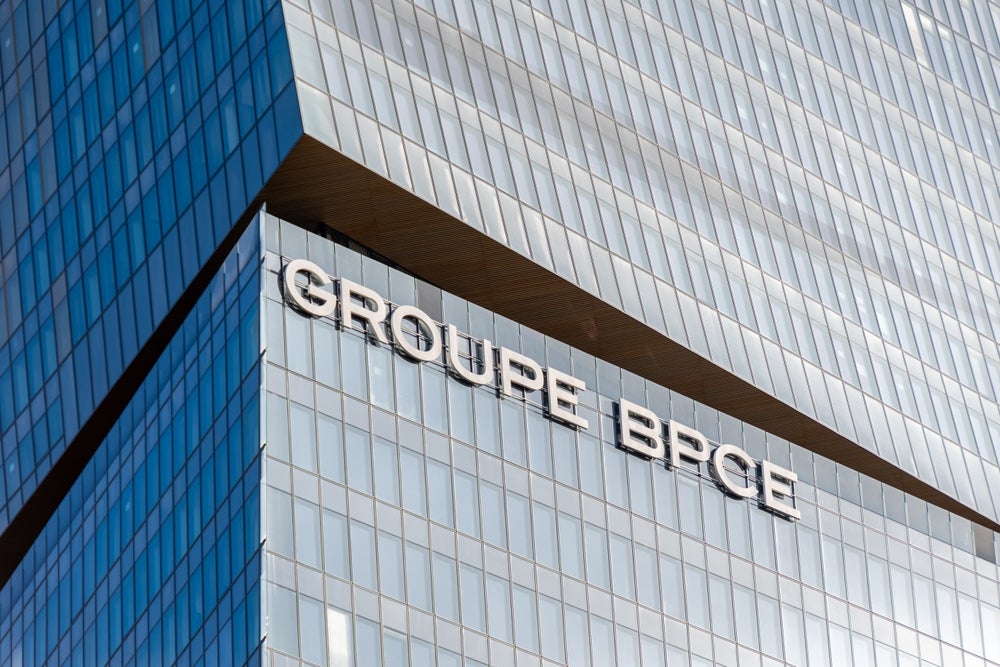
Lease businesses in Austria are reaping the rewards of the country’s strong economic performance over the last couple of years, and are largely optimistic that this positive trend can be maintained. Paul Golden reports.
The IMF describes Austria’s economic recovery as strong and broad-based, noting that after several years of slow growth, output picked up markedly during 2017 and into 2018.
Output expanded by 3% in 2017, boosted by income tax cuts passed in 2016, higher public spending on refugees, and a recovery in private investment, laying the foundation for a sustained robust expansion.
Consumer and business confidence indicators have surpassed levels observed before the global financial crisis, and credit growth has recovered. Employment growth has accelerated and unemployment has started to decline.
The country’s debt fell by five percentage points of GDP to 78.5% in 2017, and the IMF says the near-term outlook is for strong growth with a gradual return to a potential average growth rate of around 1.75% over the medium term.
Data from the Association of Austrian Leasing Companies for the first six months
of last year underlines just how the industry’s performance is mirroring that of the wider economy.
How well do you really know your competitors?
Access the most comprehensive Company Profiles on the market, powered by GlobalData. Save hours of research. Gain competitive edge.

Thank you!
Your download email will arrive shortly
Not ready to buy yet? Download a free sample
We are confident about the unique quality of our Company Profiles. However, we want you to make the most beneficial decision for your business, so we offer a free sample that you can download by submitting the below form
By GlobalDataNew business reached €3.9bn in the period January-June 2018 – an increase
of more than 15% compared with the same period in 2017 – and more than 122,000 new contracts were concluded, up more than 11% from the previous year. The overall volume of leasing contracts in Austria stood at more than €23bn.
SECTORS
Looking at specific sectors, contract volume in real estate leasing grew by more than half – an indication that the domestic economy is increasingly turning to leasing for the financing of real estate projects.
The number of newly concluded equipment leasing contracts increased by 11.7%, and the average contract volume was up by 2.6% year on year.
Even stronger growth was recorded in the segments of medical technology equipment – up by 147% to go with an increase of 155% in 2017, after a decline in activity in 2016 – and computers and office equipment, which grew by 85% following a challenging 2017 when new business volume fell by more than 5%.
Car leasing is more popular than ever, with consistently high leasing rates and growth in new business. New vehicle leasing business in Austria was up by 13.3% in the first half of 2018 at €2.9bn on the back of a 218,861-unit increase in new car registrations.
These figures underline the importance of mobility to Austrian businesses. The operating leasing rate rose to 54.7% in the first six months of 2018 and the average total vehicle contract amount now stands at just over €25,700.
FLEET MANAGEMENT
Also in greater demand is fleet management. The volume of fleet management contracts grew by 12.7% to approximately € 1.9bn, and full-service contract solutions grew at a similar level.
“Leasing is seen as an alternative and more flexible source of financing in Austria,” explains Wolfgang Steinmann, secretary general of the Association of Austrian Leasing Companies.
“Although this is a very highly developed leasing market, the rate of growth in the leasing sector has far surpassed that of the general economy for several years in a row.”
Steinmann says the Association of Austrian Leasing Companies has taken many steps to raise awareness of leasing, and encourage private customers as well as small and medium-sized enterprises to lease.
“In addition, the association has presented to the government a list of issues regarding investment incentives and necessary improvements for the leasing industry,” he says.
“The government did not take any direct or indirect action to support the lease finance industry in 2018, but we are confident that we will see some actions with the upcoming tax reform in 2020.”
The vehicle leasing market was coming off the back of strong growth in new registrations in 2017, when new business volumes for the year reached a record €5.1bn.
This division proved to be much more dynamic than the non-business vehicle market, accounting for almost three-quarters of all new business. Almost four in 10 of all vehicles purchased in Austria in 2017 were leased.
Katharina Häusler, managing director of Grenke Leasing Austria, agrees that vehicle leasing is the best-performing segment of the market, due to positive trends in new vehicle registrations.
“Leasing has a major share of the business vehicle leasing market as a result of advantageous taxation in Austria; driving a company car is cheaper for an employee than having their own car,” she says.
“However, real estate business is restricted by taxation and regulations, and has therefore become less and less attractive for companies.”
Häusler suggests that the general positive trend and all-time-high volumes due to the encouraging economic situation in Austria have been the most significant trend in the market over the last 12 months.
“Small and medium-sized companies are often seen as backbone of the economy, and we especially support these companies with our leasing solutions,” she adds.
On the issue of interaction between policymakers and the industry, Häusler observes that there is a regular exchange between Wirtschaftskammer Österreich – the Austrian Federal Economic Chamber, which functions as the federal parent organisation for the nine State Chambers and 110 trade associations for different industries within Austria’s system of economy – and the leasing industry.
INCREASED AWARENESS
Alexander Schmidecker, chief executive officer at Raiffeisen-Leasing, agrees that more people are aware of the advantages of leasing in Austria than ever before, referring to rising interest in lease products from individual and corporate clients alike.
“In terms of new business, 2018 was the best year in the history of Raiffeisen-Leasing, and we will dedicate all our efforts to take this positive trend into 2019,” he says.
“From our point of view, digital solutions are to become a major factor for success – especially in the consumer leasing business, as customers start moving towards a more convenient way to access financial services.”
DIGITAL CONVENIENCE
Schmidecker says his firm has been at the forefront of offering digital solutions to its clients, and will continue to push ahead with product and service innovations to improve the customer experience.
“The desire for digital convenience is becoming increasingly important in this market as it makes processes simpler, reducing costs and effort,” he explains.
“The technical advances are the basis for further services and additional offers, and enable consumptiondependent and sales channel-focused cost structuring, forming a good basis for developing further customised offers.”
As Austria’s largest leasing company, UniCredit Leasing Austria will continue to focus on its shared customer base with parent company UniCredit Bank Austria, which is the largest bank in the country, observes the leasing company’s chief executive officer, Ömer Köksal.
“Lease financing of equipment, ranging from industrial machinery and construction equipment to agricultural engines, business jets and helicopters, as well as cable cars, renewables and rolling stock assets, is an important business area for us,” he says.
“We are, therefore, very content that we were able to achieve above-average growth of over 30% from the first half of 2017 to the first half of 2018 in the dynamic growth market of mobile asset leasing, and increased our market share in this area to around 24%,” adds Köksal.
“By contrast, the overall market for this asset class grew by only 14.3% in the same period.”
ENCOURAGING GROWTH
Asked what his company is doing to encourage growth in leasing activity in Austria, Michael Steiner, head of Erste leasing subsidiary sLeasing, says it will increasingly be relying on digital solutions in the future.
“On the one hand, this entails making the appropriate tools available, starting already with our approach to sales,” he explains.
“For example, we have developed a simple calculation tool through which customers can work out what costs would be associated with their desired vehicle with just a few clicks and at any time.
“On the other hand, we want to be there for our customers wherever and whenever we can create added value for them, which now tends to take place on a smartphone or a tablet,” adds Steiner.
“Whether our client wants to extend their leasing contract, needs to purchase new tyres or wants to inform us of a change in their family name on getting married, we want to be certain that they can resolve their issues using our app, 24 hours a day, from any location.”
According to Steiner, accessing account information, booking or changing services, and maintaining master data are processes that many customers prefer to handle by themselves.
When it comes to car leasing, there are also special topics such as the online notification of damages, which also involves uploading photos.
“In addition, we provide our car leasing clients with useful tips on their leasing contracts – for example, reminders on their smartphone that the leasing contract will soon expire, combined with a reply function allowing the customer an easy way to let us know if they want to extend the leasing contract, purchase the vehicle, or if they already have a new vehicle in their sights,” he adds.
Christian Piringer, chief executive officer at Société Générale Equipment Finance Austria and Hungary, says it is encouraging that real estate leasing has been growing – albeit from a very low level.
“Before 2009, the net book value of the real estate sector was more than €1bn,” he adds.
“However, since the regulations concerning real estate leasing have changed significantly, nobody expects a full recovery and only selected deals will be booked.”
Piringer notes that since car financing is mostly linked to the numbers of cars sold and the share of this market captured by leasing firms is already very high, further significant growth at the expense of other financing models is not to be expected.
“However, fleet management is benefiting from the general trend towards outsourcing, and this seems to be a market with the potential to grow over the next few years,” he says.
Piringer reckons the development that has had the greatest impact on the Austrian lease industry over the last 12 months has been the introduction of the new IFRS rules, which have served to push the market towards finance models such as hire purchase.
“At the same time, there is demand for real service contracts and pay-as-you-earn solutions,” he adds. “Only specialised leasing companies that have a close relationship with vendors are able to meet this demand.”
SPECIALISED SOLUTIONS
In order to encourage growth in leasing activity in Austria, Piringer says Société Générale Equipment Finance is following the group strategy to support its international vendor partners with specialised financing solutions.
“We regard ourselves as being a frontrunner in the area of vendor financing,” he says. “We have been introducing modern financing schemes to the Austrian market, as well as special solutions which become more important for vendor finance solutions such as purchase of receivables models, where the customer does not have to sign a separate financing contract but can get the supply of equipment and a financing solution in one contract channelled through their supplier.”
New models where Société Générale Equipment Finance as the financer takes equipment risk have been offered to the market, and these developments have given Piringer confidence that the business could grow by more than 30% compared to last year, although he sounds a note of caution on expectations for the wider lease market in 2019.
“At the moment we are receiving conflicting information from the market,” he concludes. “Demand from customers and orders are still strong, but many people talk about an upcoming downturn.”







